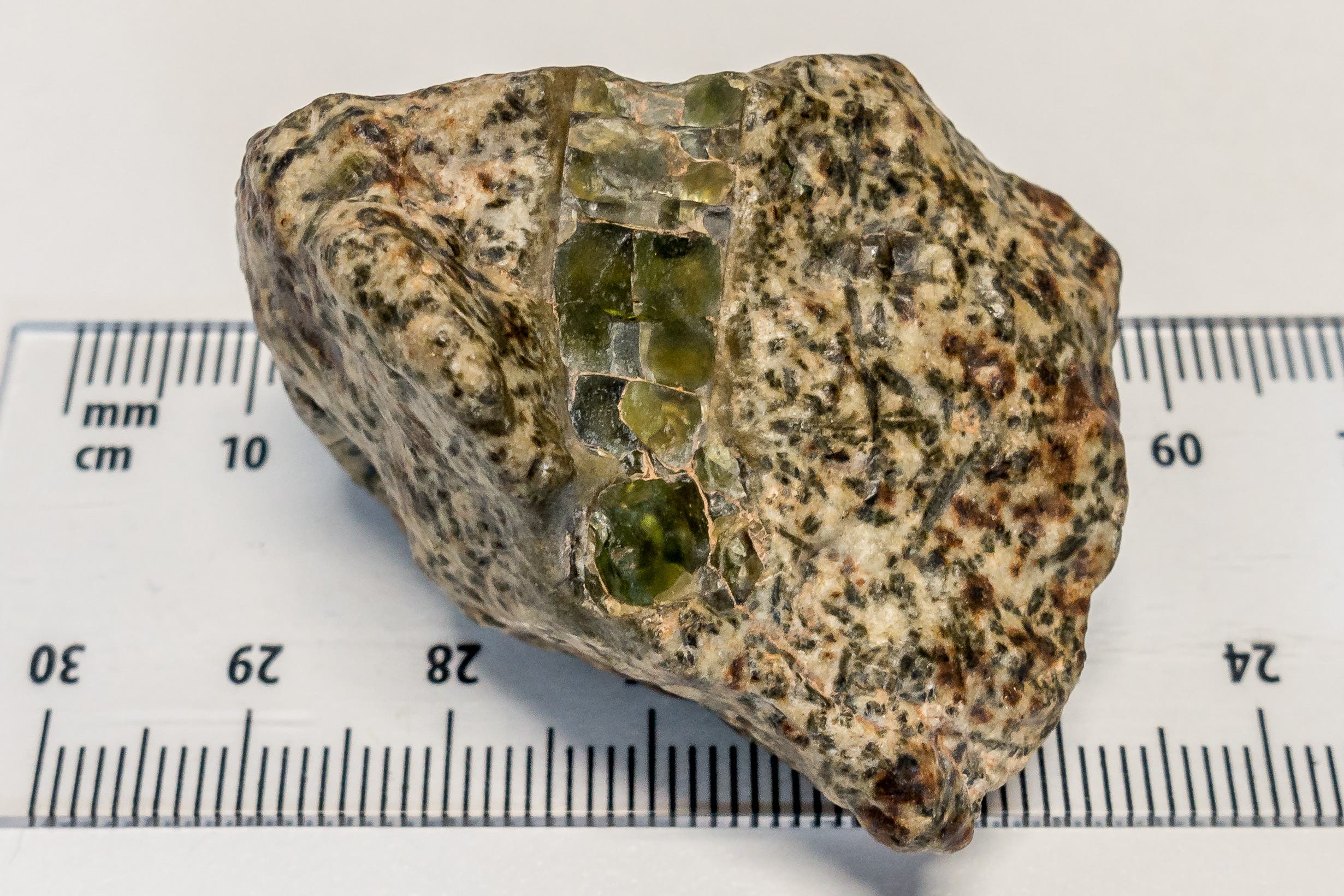4.6 billion-year-old meteorite sheds light on early solar system – study
Erg Chech 002 was discovered in 2020 in the Erg Chech region of the Sahara Desert.

Your support helps us to tell the story
From reproductive rights to climate change to Big Tech, The Independent is on the ground when the story is developing. Whether it's investigating the financials of Elon Musk's pro-Trump PAC or producing our latest documentary, 'The A Word', which shines a light on the American women fighting for reproductive rights, we know how important it is to parse out the facts from the messaging.
At such a critical moment in US history, we need reporters on the ground. Your donation allows us to keep sending journalists to speak to both sides of the story.
The Independent is trusted by Americans across the entire political spectrum. And unlike many other quality news outlets, we choose not to lock Americans out of our reporting and analysis with paywalls. We believe quality journalism should be available to everyone, paid for by those who can afford it.
Your support makes all the difference.A 4.6-billion-year-old meteorite could shed light on the early solar system, new analysis suggests.
The meteorite, called Erg Chech 002, was discovered in 2020 in the Erg Chech region of the Sahara Desert in Algeria.
Aluminium-26 (26Al), a radioactive isotope (same form of the same element) that was present in the meteorite when it formed, was spread unevenly throughout our solar system, the new study in combination with previously published data indicates.
Researchers suggest the findings increase our understanding of the early solar system and may improve the accuracy of determining the ages of very old meteorites.
Developing a generalised approach for isotopic dating with Al-Mg and other extinct isotope chronometers... would allow to produce more accurate and reliable age data for meteorites
Erg Chech 002 is an andesitic achondrite – a type of stony meteorite among the oldest known of to date.
According to the research published in Nature Communications, 26Al was a major heat source for early planetary melting and Erg Chech 002’s age provides an opportunity to further explore the initial distribution of the isotope within the early solar system.
Whether it is distributed evenly throughout the early solar system is important in determining the age of meteorites.
Evgenii Krestianinov at the Australian National University, and colleagues, analysed Erg Chech 002 and determined its lead-isotopic age as about 4.566 billion years old.
They combined this finding with existing data for this meteorite and compared it with other very old meteorites that crystallised from melts.
The researchers demonstrated that 26Al had an uneven distribution within the early solar nebula – the rotating, flattened disk of gas and dust from which the solar system originated.
According to the researchers, meteorite chronology studies should be cautious and take a generalised approach to dating with short-lived isotopes that account for their uneven distribution.
This would improve the accuracy and reliability of determining the ages of meteorites and planetary materials, they say.
The study authors write: “Developing a generalised approach for isotopic dating with Al-Mg and other extinct isotope chronometers that accounts for heterogeneous distribution of the parent radionuclide would allow to produce more accurate and reliable age data for meteorites and asteroidal and planetary materials to advance a better understanding for the formation of our solar system.”